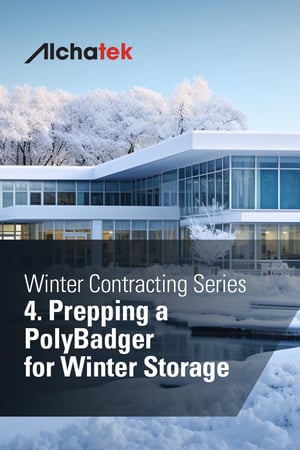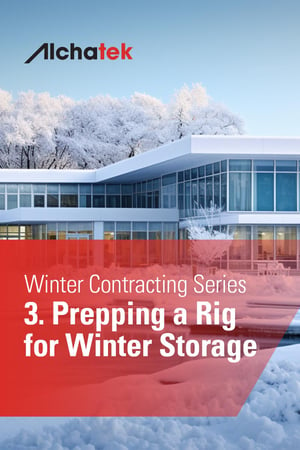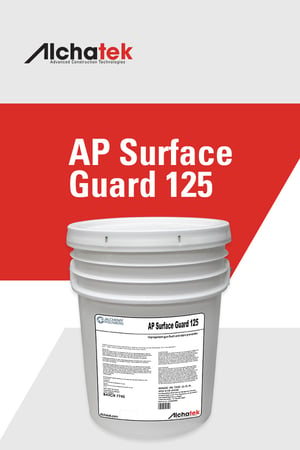
 Polyurethane slab lifting effectively restores sunken concrete surfaces. This process relies on specialized slab jacking equipment, enabling contractors to perform precise and efficient repairs. This overview will explore the fundamental tools for successful polyurethane slab lifting operations.
Polyurethane slab lifting effectively restores sunken concrete surfaces. This process relies on specialized slab jacking equipment, enabling contractors to perform precise and efficient repairs. This overview will explore the fundamental tools for successful polyurethane slab lifting operations.
Slab Jacking Equipment Rigs
Firstly, let's consider the most popular slab lifting rig options. V-nose trailers (16-20 feet) and Box Truck Build-Outs (16-28 feet) are the most common choices for polyurethane contractors. These rigs provide ample space for storing and transporting essential equipment and materials to various job sites. The flexibility of these mobile setups allows contractors to easily adapt to different project scales and locations.
Slab Lifting Pumps
Moving on to slab lifting pumps, PMC plural component hydraulic proportioners play a crucial role in polyurethane slab jacking. These reliable pumps are designed to inject two-component structural foams effectively. Additionally, they utilize relays and circuit breakers instead of circuit boards, thus enhancing reliability and reducing maintenance issues. The rugged construction of these pumps ensures they can withstand the demanding conditions often encountered in concrete leveling projects.
MixMaster Pro Slab Lifting Gun
Furthermore, the MixMaster Pro slab lifting gun is manufactured explicitly for concrete leveling. It's built to handle high back pressure and has a durable stainless steel construction. Moreover, its integrated rebuildable check valves protect the whip hose, lowering replacement costs. The gun's mechanical actuation system eliminates the need for side seals or O-rings in the mixing block, further simplifying maintenance and increasing reliability.
PolyBadger Mobile Lifting System
The PolyBadger lifting system is an excellent option for contractors seeking a compact solution. Its auto-calibrator ensures precise component ratios, thereby preventing mix-up issues. Notably, this system can fit in a pickup truck, making it highly portable for various job sites. The PolyBadger's versatility makes it ideal for both beginning slab lifting contractors who want to start with a smaller, more affordable unit and experienced professionals looking to add a compact system to their arsenal for hard-to-reach locations.
Jack Attack Manual Slab Lifting System
The Jack Attack system proves invaluable when dealing with small to medium slabs. This leverage device, featuring a triangular steel frame and an 8000 lb jack, allows for accurate slab positioning during polyurethane injection. As a result, it significantly simplifies complex repairs. The system's design enables a single operator to manipulate slabs efficiently, reducing labor requirements and improving overall project efficiency.
Dynamic Cone Penetrometer for Soil Testing
Assessing soil strength before beginning polyurethane injection can be crucial. The Dynamic Cone Penetrometer (DCP) offers a portable solution. Consequently, the data gathered helps develop effective injection plans and accurately estimate material usage. Many municipalities and agencies recognize DCP testing as a valid method for soil strength assessment, potentially opening up additional revenue streams for contractors.
Stain Prevention with AP Surface Guard 125
Lastly, many contractors use AP Surface Guard 125 to prevent staining during slab jacking. This water-based barrier protects concrete surfaces from polyurethane resin stains. Additionally, it serves as a flushing agent for cleaning the MixMaster gun block, thus offering a dual-purpose, environmentally friendly solution. Its biodegradable nature aligns with growing environmental concerns in the construction industry.
Polyurethane Slab Jacking Equipment
In conclusion, as slab jacking equipment continues to evolve, polyurethane contractors gain access to more efficient and precise tools for concrete repair. Professionals can deliver high-quality results by understanding and utilizing these specialized tools while optimizing their operations across various projects. The ongoing development of slab jacking equipment underscores the industry's commitment to improving concrete restoration techniques and outcomes.
Want more information on slab lifting products and equipment?





 MixMaster Gun Cleaner 160 is the latest innovation designed to streamline maintenance for contractors using the
MixMaster Gun Cleaner 160 is the latest innovation designed to streamline maintenance for contractors using the 
 Concave ports, for use with PX-7 Slab Lifting Guns, offer enhanced performance for concrete lifting with their unique dimple top and black sealing sleeve for a secure fit. Their durable design ensures reliability under tough conditions, while the sleeve's ability to seal directly to concrete minimizes leaks and boosts efficiency, reducing the need for frequent port replacement due to leakage.
Concave ports, for use with PX-7 Slab Lifting Guns, offer enhanced performance for concrete lifting with their unique dimple top and black sealing sleeve for a secure fit. Their durable design ensures reliability under tough conditions, while the sleeve's ability to seal directly to concrete minimizes leaks and boosts efficiency, reducing the need for frequent port replacement due to leakage. 
 The PX-7 incorporates a valving rod to mechanically purge the mixed material from the mixing module at the end of each shot; eliminates the need for solvent flushing or air purge. It comes standard with a precision machined coupling block made from high strength steel. Manufactured by
The PX-7 incorporates a valving rod to mechanically purge the mixed material from the mixing module at the end of each shot; eliminates the need for solvent flushing or air purge. It comes standard with a precision machined coupling block made from high strength steel. Manufactured by 

 Winter weather creates unique challenges for polyurethane slab lifting operations. As temperatures drop, proper equipment care becomes essential for successful projects. Here are vital tips to keep your rig running smoothly during cold weather and properly stored at season's end.
Winter weather creates unique challenges for polyurethane slab lifting operations. As temperatures drop, proper equipment care becomes essential for successful projects. Here are vital tips to keep your rig running smoothly during cold weather and properly stored at season's end.
 Polyurethane slab lifting effectively restores sunken concrete surfaces. This process relies on specialized
Polyurethane slab lifting effectively restores sunken concrete surfaces. This process relies on specialized 
 This guide outlines a step-by-step process for setting up your
This guide outlines a step-by-step process for setting up your 


 As temperatures drop, contractors in certain areas need to winterize their slab lifting rigs for storage during the off-season. Below are the step-by-step guidelines to properly store your equipment.
As temperatures drop, contractors in certain areas need to winterize their slab lifting rigs for storage during the off-season. Below are the step-by-step guidelines to properly store your equipment.
 Alchatek's
Alchatek's 
